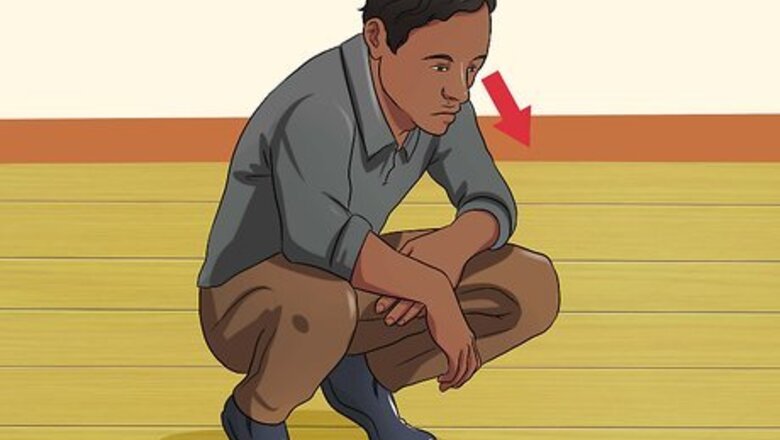
views
Standing Up Quickly
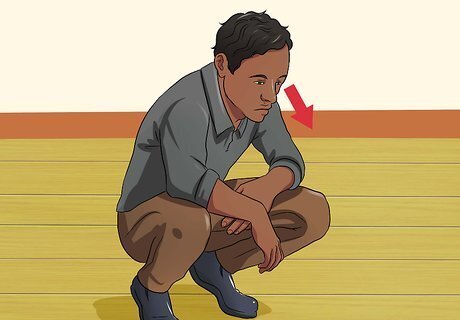
Crouch. Bend your knees and get low to the ground. Hang your head low. When you stand up quickly after you've been crouching, sitting, or laying down for a while, the blood rushes from your head, and your brain is momentarily knocked off of its usual equilibrium. If you haven't been sitting or laying down for long, try crouching down and breathing rapidly to simulate the process. Be aware of external factors. The lightheaded effect will be more intense if you're hungry or dehydrated, or if the air is hot and humid. If you get too lightheaded, you might faint or vomit. Consider standing on your head or performing a handstand. Turning yourself upside-down is a very quick way to bring blood to your head. The process is essentially the same: stay upside-down for a minute or two until your head is heavy – then stand. Make sure that you have plenty of neck support.
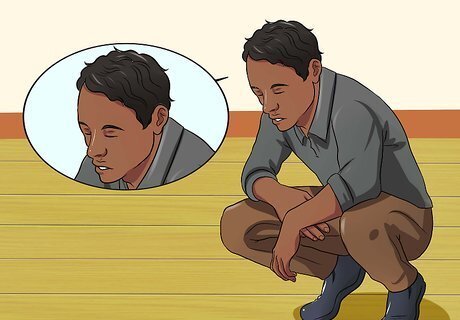
Breathe quickly and deeply in your crouched position. In theory, this will increase your blood flow and temporarily raise your blood pressure – especially to your head and lungs. Keep breathing and crouching for at least thirty seconds, and as long as several minutes. Bear in mind that the longer you stay down, the more likely you are to feel lightheaded upon standing. The heavier and faster you breathe, the higher your heart rate will go. This will cause your blood flow to quicken.
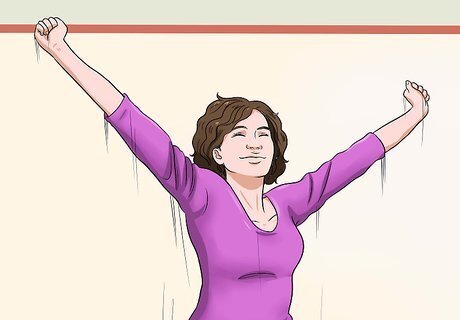
Stand up quickly. Hold your head high, and don't move around much. The blood pressure should drain from your head, suddenly. You should feel lightheaded almost immediately. Your vision may go dark. You may see spots, "stars", or bright points of light dancing before your eyes. You should feel an overwhelming head rush.
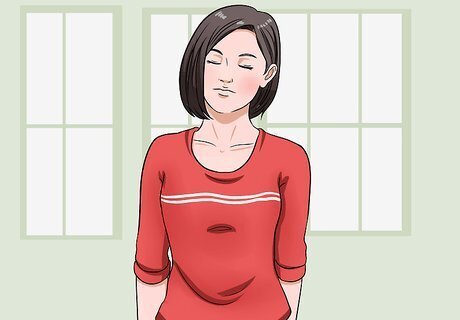
Wait before you walk. It's best to stand still for a few moments and enjoy the sensation. Let your vision return, and let your brain restore its balance. If you try to walk while you're very lightheaded, you might trip, fall, or bump into something.
Holding Your Breath
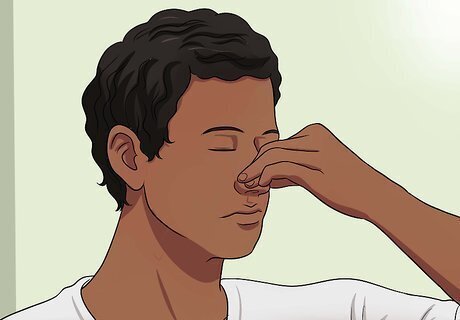
Hold your breath. Holding your breath deprives your brain of oxygen. Your body is used to a steady flow of fresh oxygen; indeed, you need to breathe it almost constantly to survive. If you hold your breath, you deprive yourself of oxygen, and your brain quickly descends into "crisis mode". If you hold your breath until you feel uncomfortable—even for just a matter of seconds—you will be able to make yourself lightheaded.
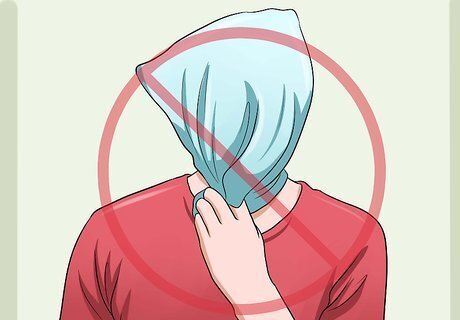
Be very careful. Don't hold your breath for too long, or you might pass out. Whatever you do, do not deprive yourself of oxygen in a way that you can't manually override. You're playing with your life here. Only hold your breath if you are able to resume breathing again at a moment's notice. This means: Do not seal your head inside an airtight container, like a bag or a plastic wrap. Certainly don't plug your nose and your mouth at the same time. You run a high risk of suffocating. Do not try to make yourself lightheaded underwater. If you pass out underwater, you might not be able to bring yourself to the surface – and you might drown. Do not try to make yourself lightheaded while you're doing anything that requires your full attention. Don't do this while riding a bike or driving a car. Don't do this while standing on the edge of a high place. You might crash; you might fall.
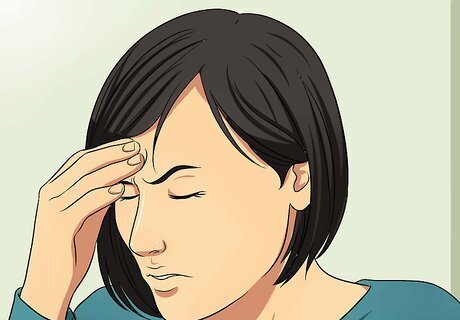
Prepare to see stars and feel very dizzy. Your vision may go dark, and your brain may feel temporarily empty. The sensation might be overwhelming; you might even pass out. Don't try to walk until your head clears. Make sure that you are always in control of whether or not you can breathe – otherwise you risk brain damage or even death.



















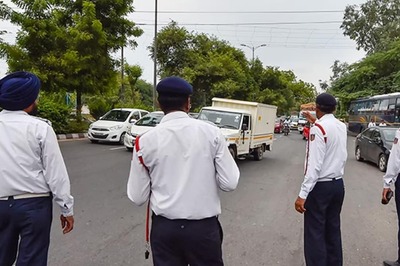
Comments
0 comment